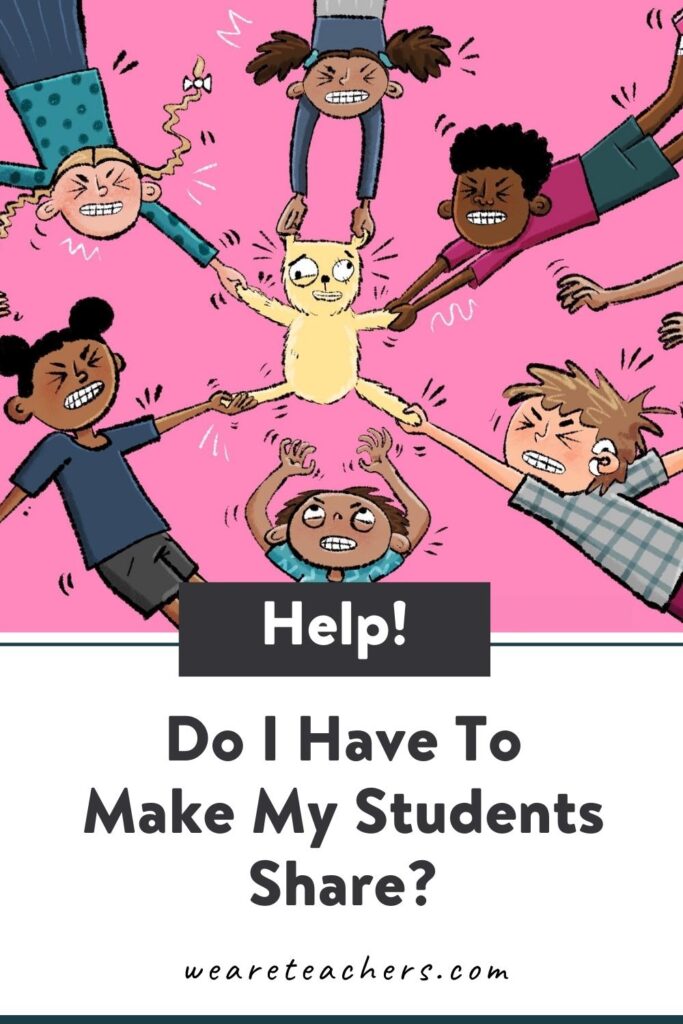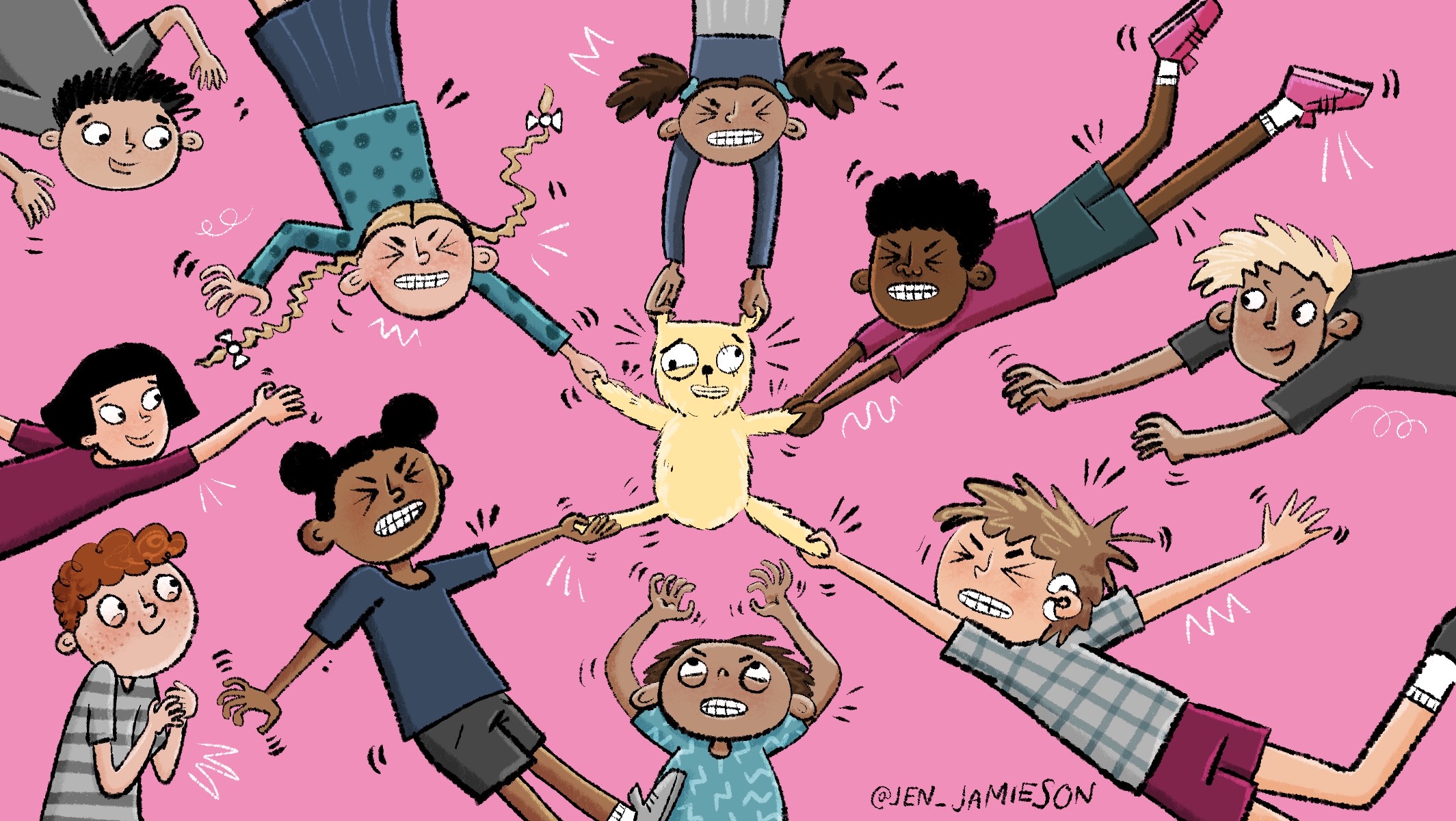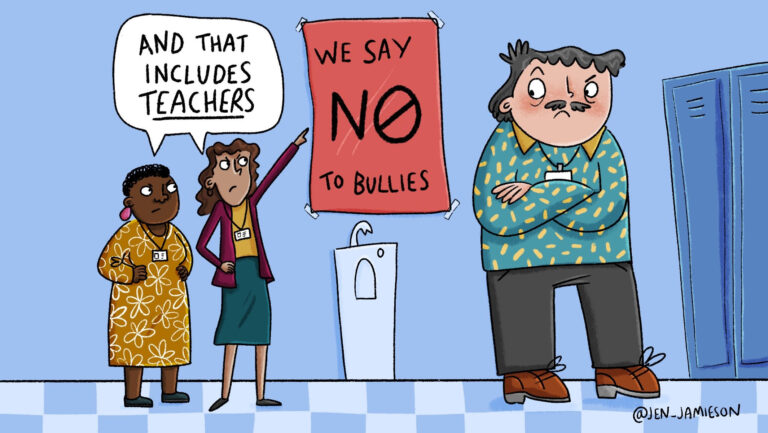Dear We Are Teachers,
After learning a thing or two my first year of teaching second grade, this year I decided on a new class norm: You do not have to share. Last year I saw way too many kids upset after feeling pressured to share something, only to have the other person break it, lose it, damage it, or just never return the favor. I thought I created space for a way my students could practice setting boundaries, but instead I’ve created a monster. My department chair thinks I’m being stubborn, parents are livid, and my principal is threatening to tell his boss if I don’t walk this one back. Who is right?
—Sharing is Ensnaring
Dear S.I.E.,
I had a friend in kindergarten who asked me to “share a souvenir” (in other words, “Give me one of your toys to take home”) every time she came over to my house, insisting it was good manners. Tearfully, I gave up Barbie after Barbie until one day my mom caught on to what was happening and helped me reset some boundaries around my belongings. (Never did get my 1995 Olympic Gymnast Barbie back, though.)
I hear what you’re saying, and I wonder if this is a PR opportunity to reframe your norm in a way that still accomplishes what you want, but sounds less scary to parents and your school.
Instead of “You don’t have to share,” I think these two norms would cover the same territory:
“We always share what belongs to the school.”
“We respect others’ belongings and decisions.”
You can then lead your students in discussions about the following:
- We expect you to share what belongs to the community. Class supplies and playground equipment belong to the school, not individual students, so they must be shared. But if you have students keep their own supplies in cubbies or boxes, they don’t have to lend them out.
- Sharing your own belongings is a kind choice, but it isn’t always the right choice. Help students distinguish between when sharing is a kind choice (when you have enough for everyone, etc.) and times when sharing might not be safe or wise (potential allergens in food at lunch, key to their house if they let themselves in after school, something special brought for show-and-tell, etc.)
- What are some things we should do when someone shares with us? Talk about taking turns, respecting time limits, taking care of the shared item, returning it, expressing gratitude, etc.
- What might happen if we aren’t respectful of what’s shared with us? Ask kids to consider what might happen if we break all the crayons someone lets us borrow.
- What should we do if someone doesn’t want to share? (Not harangue or guilt them a la Olympic Gymnast Barbie.)
You may also want to have the “If it’s too precious to share, don’t bring it to school” talk if you’re seeing the sharing issue come up about toys, jewelry, or other items not related to school.
Tell your principal, “I’ve been thinking a lot about your advice, and I have an idea for clarifying my expectations around sharing. I will no longer tell students they don’t have to share. What do you think of these two norms instead?” Offering some transparency about what you were thinking—especially not sharing allergens in food at lunch—should smooth things over with your school community.
Dear We Are Teachers,
I have a spooky fourth grader in my class this year. (If you know, you know.) Some parents are complaining that she’s constantly talking about things that scare their children. When I asked parents for specific examples, they said things like “She wanted to name their team ‘The Werewolves’” or “My child had to read her imaginative essay on a time she says she saw a ghost.” I’m stuck on how to address this situation with parents, mostly because I don’t think my student is doing anything wrong. Or am I just blinded by my affection for my spooky student?
—Team Werewolf
Dear T.W.,
Oh, we love a spooky child.
I see where you’re coming from. Ghosts and werewolves seem pretty tame to me, too.
However, I also see the parent perspective. I know some kids personally who are particularly sensitive to “scary” content, even the stuff that might seem tame to the layperson (or the spooky child). Just seeing the decorations in the grocery store is enough to ruin their sleep that night. That would be tough too.
There’s a delicate line between helping kids navigate socially acceptable behavior and telling them they need to censor themselves. In my time teaching gifted kids, I had to have a lot of chats about behavior that wasn’t necessarily bad or inappropriate, but maybe wasn’t the right topic or behavior for every audience. Here’s what I would say to your spooky student.
“I know you love talking about creepy and spooky things. That can be really fun! Unfortunately though, talking about scary things isn’t fun for everyone in our class. I want to be super-clear: There’s nothing wrong with you or your interests. You just need to make sure you have the right audience. If it’s just you and me, or if it’s just you and another friend at recess that loves spooky things, you know you have the right audience. Do you want me to help you come up with a list of things that are OK to talk about when you don’t have an audience who loves spooky things like you do?”
Encourage her to make a “Spooky Notebook” for school where she can write down all her spideriest, witchiest, most haunted thoughts and doodles. Tell her you’d love to see it from time to time. That way, you’re still encouraging her interests but respecting the boundaries of your less eerie-inclined students.
Dear We Are Teachers,
I teach middle school. One of my students told me he used to get dropped off to and from school, but this year his mom “didn’t want to wait in line” and said he has to walk. I looked up his address in our school management system, and it shows that he lives 2 miles away! When I asked why he doesn’t ride the bus, he said his mom doesn’t want him to ride the bus either. This sounds really unfair to me. Plus, I hate thinking of my student crossing busy streets in all kinds of weather before and after a long day of school. Any advice on how to approach this with parents without them getting defensive?
—Not Knocking Walking, But …
Dear N.K.W.B.,
I’m glad that you’re watching out for your students, but don’t bring this up with parents. Here’s why.
First, districts nationwide are experiencing a school bus driver shortage this year. This is making drop-off and pickup lines longer. Waiting 30 minutes or more twice a day is time some families just don’t have.
Second, you don’t know why the student’s mom doesn’t want him riding the bus. There are all kinds of reasons she might not want that for him—and that’s more her lane than yours.
If you want to be helpful, talk to your principal or school board about setting up a carpool or temporary transportation system for students affected by the school bus shortage. Staffing is a problem we should be looking toward local leaders to fix, not parents.
Do you have a burning question? Email us at askweareteachers@weareteachers.com.
Dear We Are Teachers,
Last year, my team realized we had a tattletale. Our administrators seemed to magically know when we printed out a single concert ticket using our school printer or when we wore jeans on a non-jeans day. I figured out who it was after I planted a fake story with this teacher and, within the hour, an administrator came to ask me about it. Do I call out the tattle-teacher on what I know now, or just warn my team?
—JUST ADD ‘SNITCH-CATCHER’ TO MY CERTIFICATIONS


